On the MicroStrategy earnings Michael Saylor shares his opinions on the current macro situation and events around bitcoin. Is worth a read. Emphasis mine
In Q1, we saw some fairly seminal events, the trucker crisis in Canada, the Ukrainian war, Russian sanctions, continued inflation, supply chain chaos, concerns about food and energy shortages, all of those things have been combined with a weakening currency environment, the Chinese currency, the Japanese currency, South Africa -- South America and African currencies, and a lot of Asian currencies were all collapsing against the dollar. In fact, just about every currency in the world, except for two, I think, are collapsing against the dollar right now. This is creating a very challenging macroeconomic environment.
It's going to continue to create uncertainty and challenges for all businesses. I think that it has had the impact of increasing awareness of and the understanding of the need for a digital asset like Bitcoin and so the silver-lining is that hundreds of millions, if not billions of people are now becoming aware of the need for non-sovereign store value digital asset like Bitcoin. The negative is it creates a very challenging operating environment. Over the last few months in the world of Bitcoin, the interesting developments worth highlighting are the executive order coming out of the Biden White House on March 9th, which was really a first as long as anyone can remember, the first time that we had the executive branch in the United States in essence highlighting and endorsing an asset class as being critical to the future of the nation.
And so I thought that, that was extraordinarily auspicious. Janet Yellen gave a speech on April 7th at American University, equally auspicious. We had the secretary of the treasury of the United States, laying out the case for decentralized networks, the theory of digital property, talking about the need for digital currencies. What the innovations in the crypto economy and suggesting that the administration is going to do enthusiastically move forward to provide responsible regulations to allow this economy to grow.
I thought that was very critical, too. I think if you put all of these macroeconomic developments together with the regulator signal, what you have is a world that's a bit insecure about currencies and insecure about property rights and then, secure about 20th century banking systems and 20th century payment systems and aware that they need to find a solution. But you also have another big development, which is that the deniers of Bitcoin and digital assets in general are now being silenced by the administration of the United States. One of the early crippling criticism was this is just a panty scheme, where this is intangible or there's nothing here.
And I think that, with now the head of the SEC, the head of treasury, the president of the United States acknowledging that there is something here. And it's an important priority for the entire government. I think that, that really isolates the deniers and if not making them look silly at this point, because, it's pretty clear that 250 million people know that there is something here. And it's growing like wildfire.
And it's pretty clear that the government recognizes this. So, we have another classification of Bitcoin investors after deniers that will be the skeptics. The skeptics acknowledge that it exists. They acknowledge that it's good.
They may even acknowledge that, it's better than gold and it's better than other sorts of money or property and then they follow-up with the observation that since it's so good the politicians will ban it or the government will ban it. And that was -- that's been articulated by a number of fairly well-known credible sources over the past two years. But of course, with the March 9th executive order and the Yellen speech of April 7th, it gets increasingly difficult to maintain the skeptical stance, because you would have to, in essence, put yourself in opposition to the White House, right? It's not the policy of the United States demand Bitcoin. So in fact, it's not the policy of anyone in the Western world to band Bitcoin.
So the deniers and the skeptics are being silenced, and now the entire Bitcoin market is evolving to be controlled by the traders, the technocrats, and the maximalist. And clearly, the volatility of the market right now is driven by the fact that the traders are trading Bitcoin as a correlated asset to the NASDAQ. And technology investors that are NASDAQ heavy are selling or shorting technology assets as a risk off trade, as the Federal Reserve raises interest rates. So I would say that, if we look at the last three months, although the macroeconomic environment is difficult and macroeconomic winds are blowing in the face of all risk assets and all operating companies.
I would say the fundamental developments, the political developments and the market awareness of Bitcoin has made enormous strides – and if you compare where we were today on where we are today versus two years ago, the asset class has matured dramatically, awareness has matured dramatically and the risk of holding the asset class has decreased. And specifically, I think the skeptics in the past 24 months are increasingly disappearing and everyone is migrating to either a trader or a technocrat or a maximalist. I had a chance to attend the Bitcoin conference in Miami Beach this April. I noted a massive surge of interest in bitcoin among politicians, among media and among investors.
And there are a lot of politicians that hadn't heard of it and weren't interested in it a year ago, both international and domestic, and now it's on their radar, and they realize they need to pay attention to it. It's probably not uncorrelated to the executive order of March 9. I think there's a lot more media coverage and we've seen a change in the media tone. I think the media tone two years ago was nonexistent.
In fact, people used to lament that Bitcoin was not being covered by mainstream media at all. It wasn't until February of 2021 after Tesla bought Bitcoin that Bitcoin got on to the radar of mainstream media. But I think that over the past few months, the tone has evolved from skeptical or amused to respectful. And in fact, I almost noticed now that that mainstream journalists across the major papers and the major cable news networks are all much, much more aware of the entire crypto economy, much, much more aware of bitcoin in its value proposition and much less skeptical, much more interested in engage.
And I think the environment has moved from disinterested, through skeptical to now neutrally intrigued or even, I would say, intrigued, intrigued would be the right word in the media. Also seen a bunch of investors, credible investors that are well respected in the space, speaking much more freely about Bitcoin in the marketplace. And actually, becoming much more vocal and much more supportive in their words. And I think that, that's a big move forward over the past 12 months. Examples of that, we see our Carlos, Salinas, Piaggio becoming much more vocal, [Inaudible] becoming much more vocal.
Paul Tudor Jones becoming much more vocal. And Orlando Bravo becoming much more vocal. So, I think you'll continue to see this develop over the next 12 months. I think advances in the Lightning Network are pretty relevant, maybe one of the bigger developments in the past 12 months is lightening is maturing.
And Lightning is the open permissionless non-custodial Layer 2 network. In essence, if Bitcoin represents protocol for sound money, Lightning represents a protocol for transaction and money transfer that's open permissionless. And since it's -- it could, in theory, scale to hundreds of millions or billions of transactions an hour. This is, in essence, the Internet of money.
Two years ago, the Lightning network was really just developmental. In the past year, it's come to life. And so we're now entering into early part of the year two of the Internet for money coming to life. Major milestones there, block integrating, lightning into the Cash App was a major milestone.
The release of specifications for the Taro protocol on top of Lightning is a major milestone. What it means is that Lightning will in time not just move Satoshi's back and forth at the speed of light to billions of people, Lightning will also move other digital assets like stable coins, Tether or a circle or any other digital currency or any other digital token could or an NFC or another asset could move over the Lightning network at extraordinary high speeds, extremely scalable, while taking advantage of the security assurances of the Bitcoin network. So that's pretty compelling. Kraken also incorporated Lightning into their exchange, and that's a very compelling breakthrough.
So I think in time, all the competitive digital assets, exchanges and all the competitive applications of money transfer and the like are going to have to build Lightening as a protocol into their applications. And we've got a number of years of development there, but the significance of Lightning is it takes Bitcoin from being viewed just as an asset and as a low frequency, high volume -- a low-frequency, high-value settlement network and it takes it to the next level, which is becoming a high frequency, high volume, very, very functionally rich, scalable transaction network. And there will be, I think, an explosion of applications on top of the Bitcoin network that are empowered by Lightning. Another big development in Bitcoin this last quarter is the launch of Fidelity's 401k offering.
We're very enthusiastic about that. And of course, we're an early anchor partner with them on that launch. Bitcoin is better than gold. To call it digital gold is an understatement.
It really is the hardest money in the history of the world. But if you're thinking about generational wealth and if you wanted to leave something for your grandchildren or if you wanted a retirement fund, it's obviously a very, very compelling element of a 401k. We just saw just on television today, one of the world's great macro investors, Paul Tudor Jones said, in the current economic environment, I certainly wouldn't be owning stocks and bonds. I mean, people are very skeptical of owning equities and owning bonds in an environment where you have hyperinflation and macroeconomic wins.
So if I can't on stocks, and I can't own bonds, and what am I supposed to put in a 401k? And this is where Bitcoin comes. What have I wanted to hold some kind of commodity money that's better than a commodity because no one can make any more of it. And Bitcoin is that thing. So I do think that -- the world is evolving rapidly.
It's probably evolving faster than regulators and the mainstream media can keep up with it kind of like a shock wave. When you start moving through the civilization at a faster rate than people can educate themselves on the consequences, you'll see sparks, but the 401k launch was kind of the shot heard around the world here because what's going on here is people are going to have to stop and think about this and either this is the least risky thing you can put in a retirement portfolio or it's too risky to put in a retirement portfolio. And of course, as soon as you think about it and study it, you'll realize that it's the least risky thing you could put in a retirement portfolio. At least that's the opinion of people that have studied Bitcoin for a while.
So the 401k offering from Fidelity is a massive educational event. It's going to put this front and center on the table for financial advisors, retirement planners, the entire big finance industry and I think, ultimately, it's going to introduce Bitcoin to an entirely new class of investors and broaden fill the asset class. So, I'd like to move on to talk about our Bitcoin strategy. We're going to continue to pursue a strategy which offers our investors spot exposure with leverage to Bitcoin.
So if you want to buy a security and you would like that security to own Bitcoin. And then you would like to -- and you think it would be a reasonable idea to borrow money at 1.8% interest and buy that Bitcoin then MicroStrategy looks like a rational company to invest in. We're going to work to increase our Bitcoin holdings over time in an accretive fashion. So we're not trading Bitcoin, we're not selling Bitcoin we're holding Bitcoin.
And from time to time, when we can, we'll buy more Bitcoin. If we focus upon the strategy, then we believe that we can offer a security to the market and be an operating company that, in essence, is superior to the security that you would get if you were to buy a spot ETF. We won't be an ETF. We're an operating company, and we have the software business.
But for an investor that's thinking about buying an ETF that holds spot Bitcoin, they'll think about that. It will probably have no leverage, they'll probably pay a fee. And our goal will be to offer them the same Bitcoin holding, but without charging that fee and to use intelligent leverage from time to time when the opportunity presents itself. I was very, very pleased with the Bitcoin backed loan that we were able to acquire this quarter.
We'll obviously use that mechanism sparingly because generally, we're not going to want to develop a large set of obligations where we might have to post additional collateral on a price fluctuation of Bitcoin. So managing our balance sheet versus the risk in the volatility of Bitcoin is primary concern we're always thinking about. We will slow down our Bitcoin acquisitions when market conditions don't present us with any good opportunities. And when the market presents us with lots of good opportunities, we may speed up.
And you'll just have to tune in quarter-by-quarter to see what we do there. We have the option to do nothing. And if the market doesn't give us a good option or we have the option to do things. You can see at this point, we've now bought Bitcoin with senior secured debt.
We bought Bitcoin with a tender offer. We bought Bitcoin with cash flows from the core business. We bought Bitcoin with convertible debt. We bought Bitcoin with at-the-market equity issuance and we bought Bitcoin with an asset-backed financing.
And we pursued each of those initiatives at the time we did it because we thought that they would be accretive to our common stock shareholders and beneficial to our long-term strategy. My last point I'll make before we take questions are; we will continue to pursue a mission of education and advocacy on behalf of Bitcoin to the general market. As the largest public holder of bitcoin, it makes sense for us to educate regulators. It makes sense for us to educate other corporations, it makes sense for us to educate anyone in the media or any politicians that are interested and what this means to the world, and why it's good for the world, why it's good for the United States, why it's good for their corporation, their institution and then how they can benefit and plug Bitcoin into their P&L or plug it into their balance sheet.
If you don't follow me on Twitter, please do. I now just cross 2.4 million followers. And I try to share thoughts about the current environment on a pretty routine basis. I'm pleased to say that by the end of the day today or tomorrow, a podcast I did with Lex Friedman on YouTube will have crossed 2 million views.
So I sat down with Lex in my study at my home in Miami Beach, and we talked for four hours about digital transformation and the bitcoin imperative. And our strategy and, of course, macroeconomics and geopolitics. And it's not easy to put 2 million people into your living room. But 2 million people listening for four hours is a lot of education, and we'll continue to do more of it.
I feel that where there's an enormous thirst for knowledge about digital assets. There's enormous thirst for knowledge about the implications of Bitcoin to the world and the entire crypto economy. There's a lot of education to do. We're nowhere near done.
We're really just starting, but we have established a platform to do that and we will get more and more opportunities to communicate this message and educate the world. I'll continue with our efforts working with Bitcoin miners through the Bitcoin Mining Council and the entire Bitcoin community to address misperceptions about mining to explain the benefits of Bitcoin, the benefits of coin mining. We just had another quarterly release of Bitcoin mining information where we were able to show the world for the fourth quarter in a row, Bitcoin mining is running on more than 50% sustainable energy, in fact, 58%. 58% sustainable energy usage makes the Bitcoin mining industry, the cleanest, most sustainable industry in the world of all industries.
And that was a surprise to many people. It continues to be a surprise to many people, but it's a delightful surprise. Bitcoin mining in general, is 63% more efficient year over year. And a lot of people don't realize that the Bitcoin network is secured, not just by energy, but by technology and that technology is getting exponentially more efficient overtime.
So I'm really pleased that we're able to educate the world on the efficiencies of the Bitcoin network and the benefits of Bitcoin and Bitcoin mining. I think that there is a lot more education to do. Our leadership role in acquimiamiring and holding bitcoin as a publicly traded company. It's afforded us a platform to do a lot of that education and we'll continue to do that in the coming year.

You can get bonuses upto $100 FREE BONUS when you:
💰 Install these recommended apps:
💲 SocialGood - 100% Crypto Back on Everyday Shopping
💲 xPortal - The DeFi For The Next Billion
💲 CryptoTab Browser - Lightweight, fast, and ready to mine!
💰 Register on these recommended exchanges:
🟡 Binance🟡 Bitfinex🟡 Bitmart🟡 Bittrex🟡 Bitget
🟡 CoinEx🟡 Crypto.com🟡 Gate.io🟡 Huobi🟡 Kucoin.

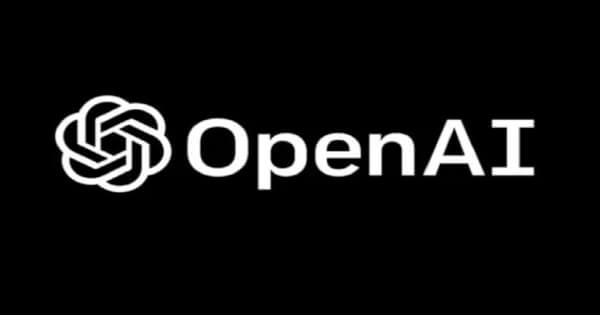
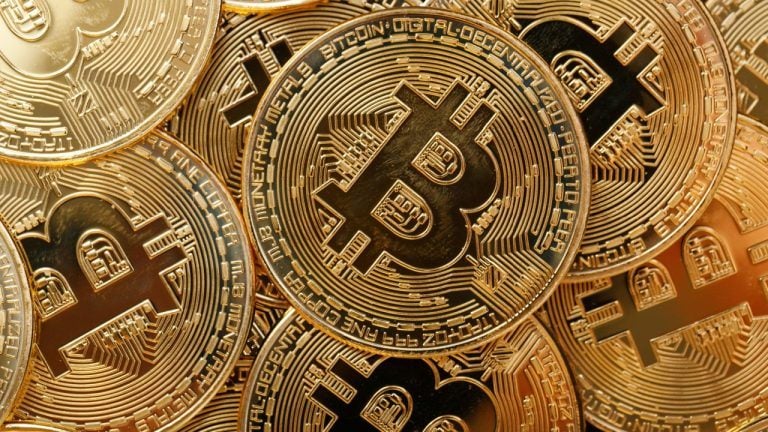

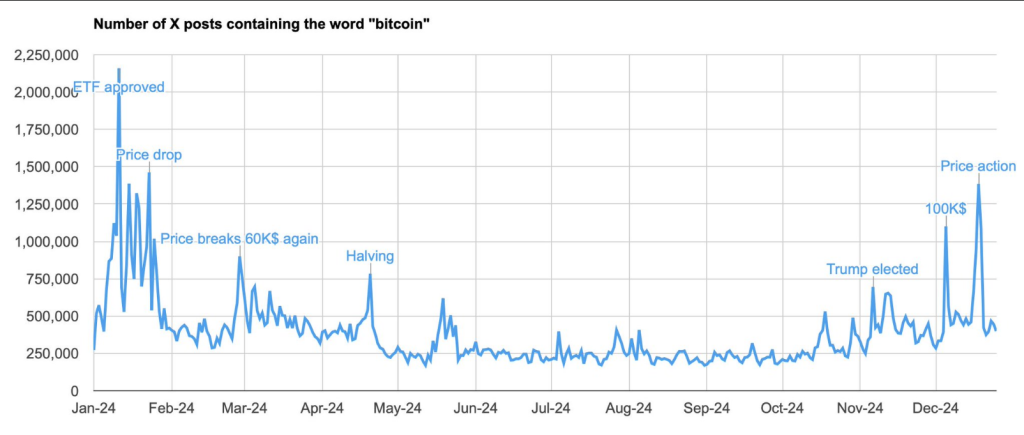

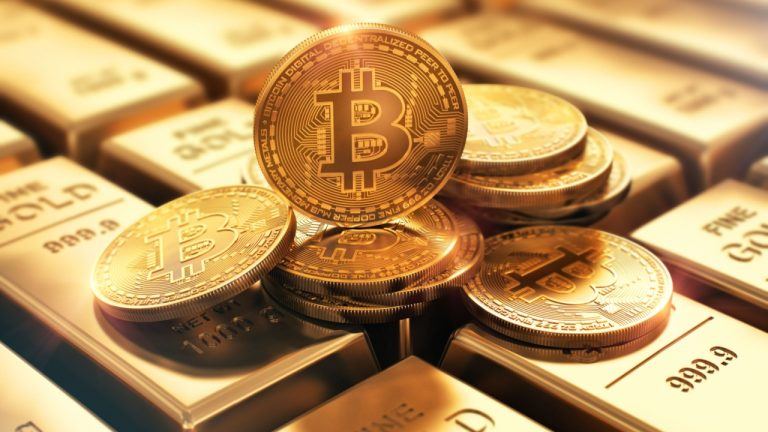
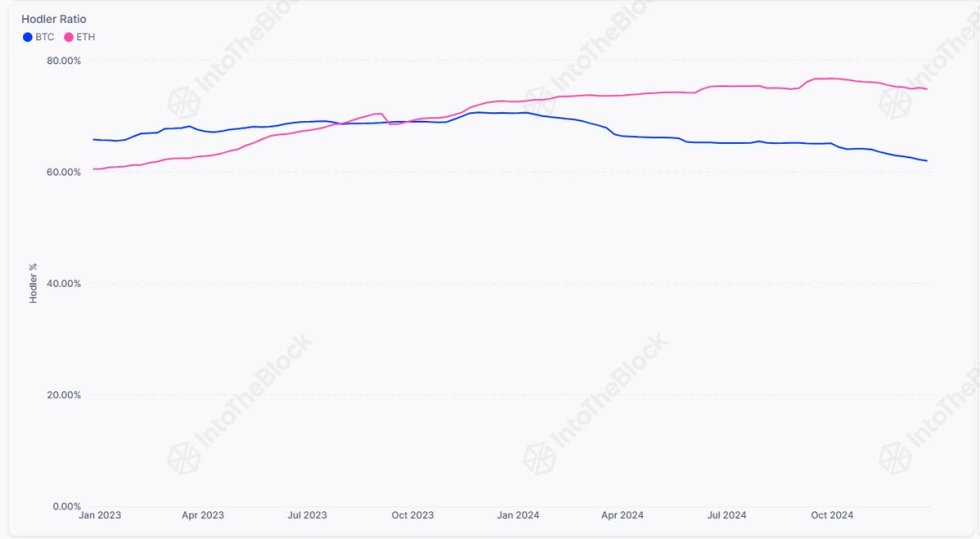






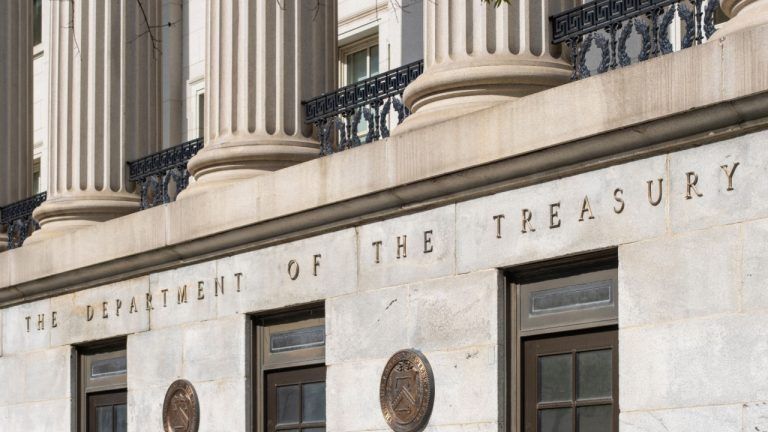
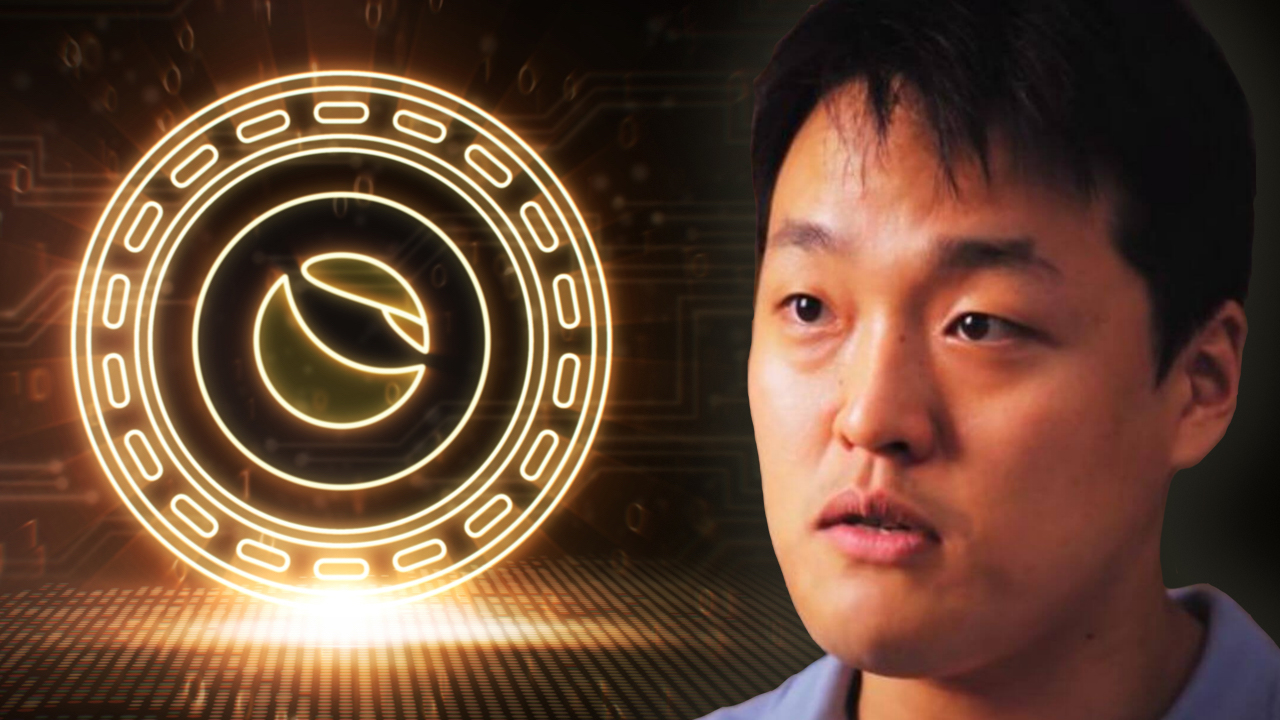


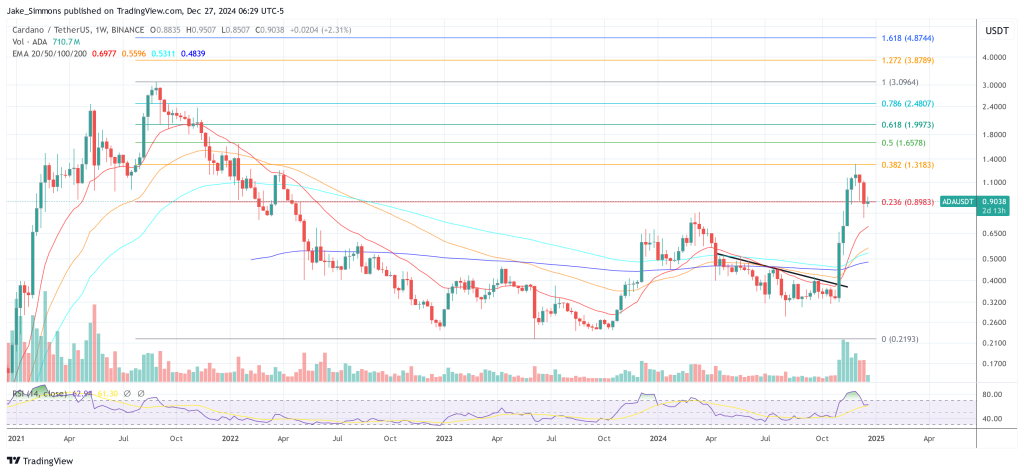

Comments